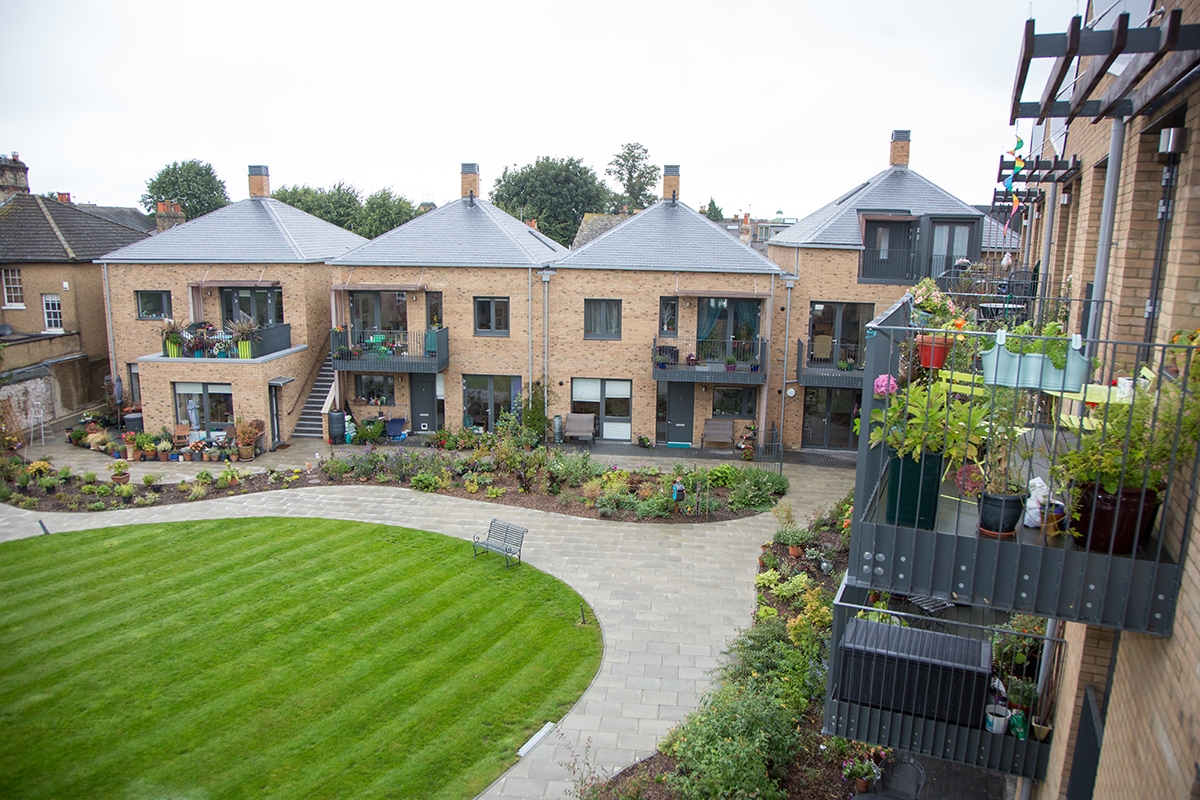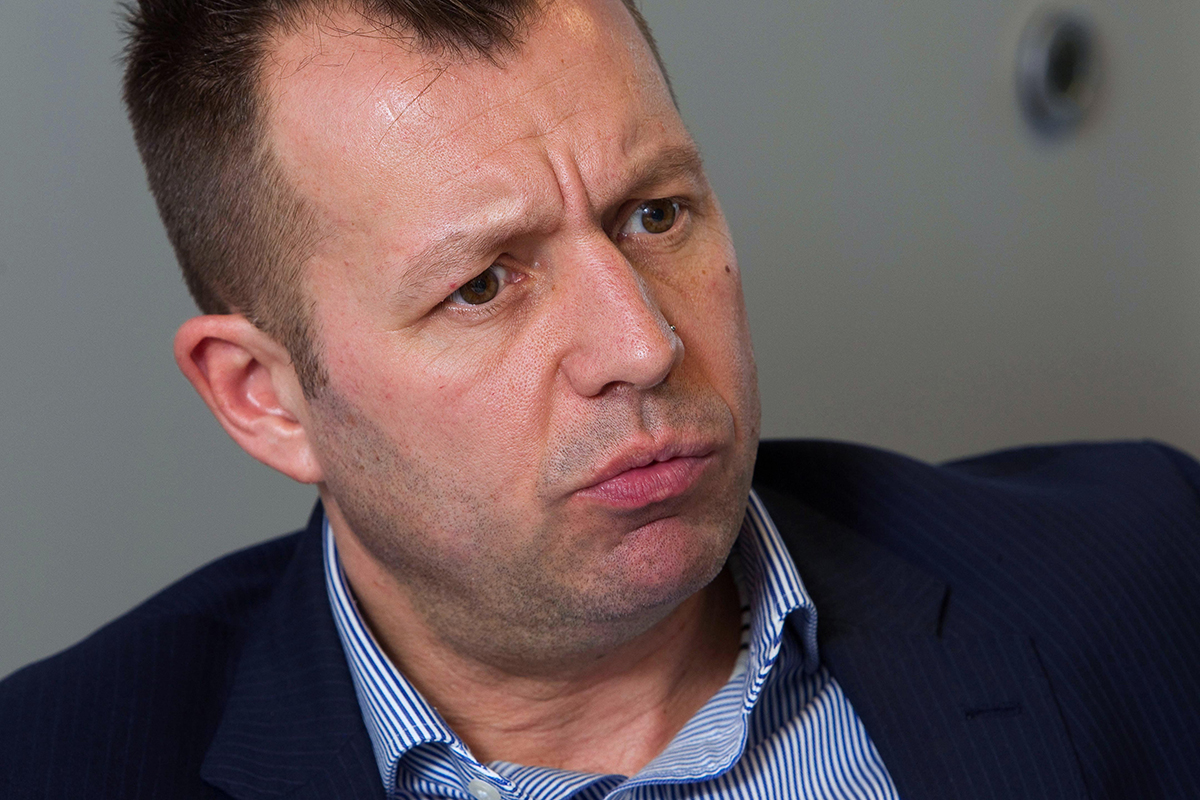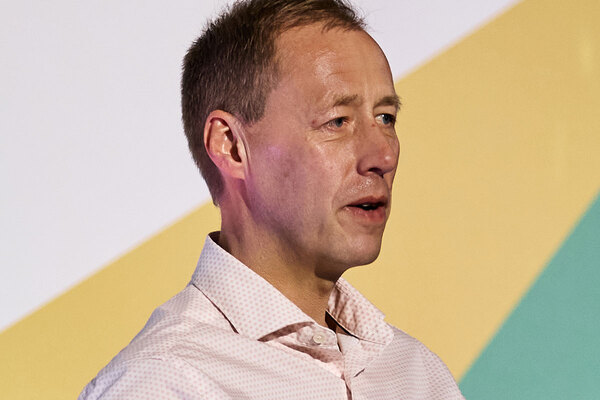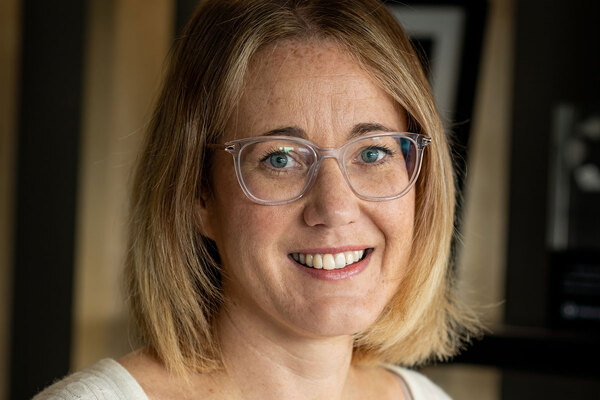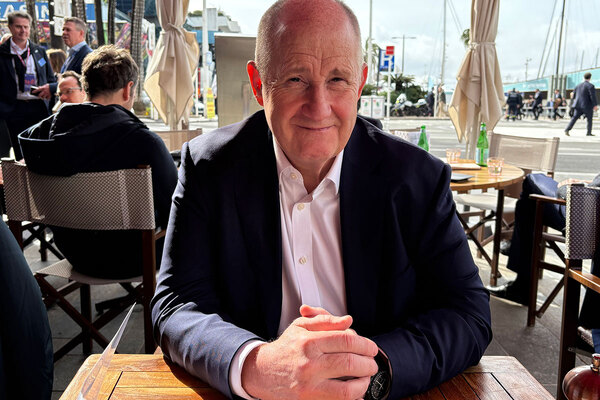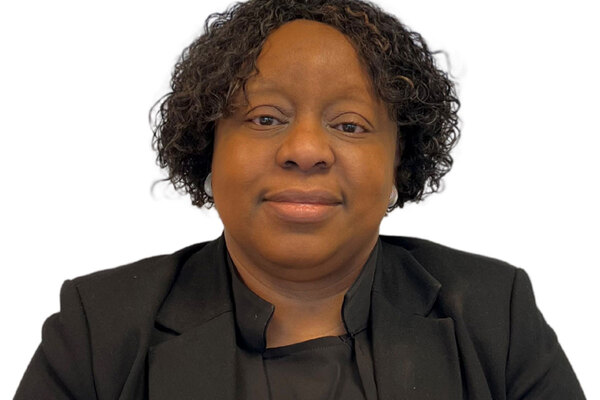Chief executive salary survey 2017
Our annual survey of chief executive salaries has landed. Simon Brandon takes an in-depth look at how pay compares within the sector. Illustration: Martin Haake
The results of this year’s annual Inside Housing survey of housing chiefs’ salaries are in. Overall pay has stayed steady this year, breaking the trend for rising levels of pay in the past few years. This is calculated by adding together basic pay, bonuses and car allowance.
In 2016/17, chief executives’ total average salary stayed almost constant at £166,205 (compared to £166,245 the previous year), while the UK inflation rate was 2.9% at time of writing. In real terms, you could say, the average housing chief executive is slightly less well paid than they were this time last year.
Their basic pay, however, has risen from an average of £150,131 in 2015/16 to £156,626 this year – an inflation-busting increase of 4%. But this figure is exactly in line with housing associations’ growth in size over the same period. The average turnover last year was £113,990,000; this year it is £118,750,000, another increase of 4%. That represents a large deceleration in associations’ rate of growth; last year, the average increase in turnover was 12.5%.
The number of homes under management has risen 6%, from an average of 17,753 last year to 18,812 this year. Around one-third of associations surveyed – roughly the same proportion as last year – have awarded bonuses to their chief executives. The average bonus has fallen slightly from an average of £16,684 last year to £15,788 this year – a fall of 5%.
Inside Housing’s survey of chief executives’ salaries 2016/17
| Housing association | Turnover | Total salary 2016/17*/** | Total salary 2015/2016*/** | % change in total salary | Chief executive | ||||||||
| A2 Dominion | £371.9m | £265,678 | £261,873 | 1% | Darrell Mercer | ||||||||
| Accent1 | £94.2m | £166,874 | £161,108 | 4% | Gordon Perry | ||||||||
| Accord | £113.8m | £185,249 | £181,472 | 2% | Christopher Handy | ||||||||
| Acis2 | £31.7m | £126,500 | £115,500 | 10% | Greg Bacon | ||||||||
| Adactus3 | £74.1m | £155,707 | £195,264 | -20% | Paul Lees | ||||||||
| Affinity Sutton4 | - | - | £320,933 | - | Keith Exford | ||||||||
| Aldwyck5 | £93.0m | £125,498 | £185,606 | -32% | Harj Singh | ||||||||
| Alliance6 | £41.7m | £113,500 | £122,036 | -7% | Louise Swan | ||||||||
| Amicus Horizon (now Optivo)7 | £188.1m | £223,934 | £219,345 | 2% | Paul Hackett | ||||||||
| Anchor | £374.7m | £351,899 | £400,010 | -12% | Jane Ashcroft | ||||||||
| Apex | - | - | - | - | Gerry Kelly | ||||||||
| Aspire | £47m | £150,046 | £157,277 | -5% | Sinead Butters | ||||||||
| Asra8 | - | - | £154,202 | - | Matt Cooney | ||||||||
| Aster | £191.0m | £226,863 | £220,909 | 3% | Bjorn Howard | ||||||||
| B3 Living | £26.4m | £130,000 | £135,487 | -4% | Joe Chambers | ||||||||
| Bernicia | £74.9m | £133,214 | £123,256 | 8% | Bill Heads | ||||||||
| Bield | £48.3m | £103,140 | £104,035 | -1% | Brian Logan | ||||||||
| Bolton at Home | £81.9m | £160,804 | £160,804 | 0% | Jon Lord | ||||||||
| Bournville Village Trust | £29.7m | £120,190 | £118,396 | 2% | Peter Roach | ||||||||
| BPHA | £122.4m | £181,000 | £178,000 | 2% | Kevin Bolt | ||||||||
| Bracknell Forest Homes | £42.7m | £147,496 | £146,035 | 1% | Caroline Titley | ||||||||
| Broadacres | £36.0m | £131,547 | £131,845 | 0% | Steve Towers | ||||||||
| Broadland | £27.4m | £124,209 | £119,669 | 4% | Michael Newey | ||||||||
| Bromford Group | £167.0m | £187,535 | £179,104 | 5% | Philippa Jones | ||||||||
| Bromsgrove District Housing Trust | £21.8m | £125,538 | £129,889 | -3% | Mike Brown | ||||||||
| Bron Afon Community Housing9 | £43.6m | £124,423 | £121,388 | 3% | Duncan Forbes | ||||||||
| Calico10 | £23.5m | £125,917 | £123,672 | 2% | Anthony Duerden | ||||||||
| Cardiff Community Housing | £18.3m | £97,372 | - | - | Kevin Protheroe | ||||||||
| Catalyst11 | £169.7m | £210,506 | £204,720 | 3% | Rod Cahill | ||||||||
| Choice Housing | £59.0m | £126,500 | £126,500 | 0% | Michael McDonnell | ||||||||
| CHP | £62.0m | £134,749 | £133,481 | 1% | Stuart Stackhouse | ||||||||
| Circle12 | - | - | £239,109 | - | Mark Rogers | ||||||||
| City West Housing Trust | £70.3m | £134,917 | £161,980 | -17% | David Cummins | ||||||||
| Clanmil13 | £29.3m | £111,205 | £110,000 | 1% | Clare McCarty | ||||||||
| Clarion14 | £796.0m | £376,199 | - | - | Keith Exford | ||||||||
| Coast & Country | £58.3m | £155,440 | £153,200 | 1% | Iain Sim | ||||||||
| Community Gateway15 | £31.1m | £130,000 | £122,152 | 6% | Diane Bellinger | ||||||||
| Cottsway | £29.8m | £117,500 | £110,000 | 7% | Vivian Rosser | ||||||||
| Cross Keys Homes | £65.2m | £165,341 | £150,858 | 10% | Claire Higgins | ||||||||
| Curo | £97.9m | £163,900 | £163,900 | 0% | Victor da Cunha | ||||||||
| DCH | £141.0m | £187,021 | £193,815 | -4% | Paul Crawford | ||||||||
| Derwent Living16 | £84.2m | £156,585 | £137,752 | 14% | Peter McCormack | ||||||||
| Dumfries and Galloway | £44.0m | £114,490 | £113,386 | 1% | Zoe Forster | ||||||||
| East Thames17 | £165.8m | £195,500 | £170,650 | 15% | Yvonne Arrowsmith | ||||||||
| EMH | £101.2 | £165,391 | £165,348 | 0% | Chan Kataria | ||||||||
| Family Mosaic18 | £265.0m | £228,000 | £220,300 | 3% | Brendan Sarsfield | ||||||||
| First Ark (formerly Knowsley Housing Trust)19 | £62.1m | £153,867 | - | - | Bob Taylor | ||||||||
| First Choice Homes Oldham | £49.3m | £145,083 | £143,706 | 1% | Cath Green | ||||||||
| First Wessex20 | £132.0m | £169,559 | £169,559 | 0% | Peter Walters | ||||||||
| Flagship21 | £119.6m | £206,728 | £192,210 | 8% | David McQuade | ||||||||
| Fold22 | - | - | - | - | John McLean | ||||||||
| Fortis Living | £96.0m | £161,582 | £152,048 | 6% | Guy Weston | ||||||||
| Freebridge Community Homes | £31.1m | £157,000 | £154,000 | 2% | Anthony Hall | ||||||||
| Futures | £47.4m | £156,382 | £154,156 | 1% | Lindsey Williams | ||||||||
| Genesis23 | £264.3m | £220,000 | £219,709 | 0% | Neil Hadden | ||||||||
| Gentoo24 | £193.3m | £203,520 | £245,996 | -17% | John Craggs | ||||||||
| Golding Homes | £41.5m | £139,937 | £131,453 | 6% | Peter Stringer | ||||||||
| Grand Union25 | £72.3m | £144,755 | £144,375 | 0% | Alan Humphreys | ||||||||
| Great Places | £109.4m | £153,476 | £154,939 | -1% | Matthew Harrison | ||||||||
| Greenfields Community Housing | £43.0m | £136,726 | £136,726 | 0% | Phil Adams | ||||||||
| Green Square | £85.8m | £135,579 | £143,100 | -5% | Howard Toplis | ||||||||
| Guinness26 | £430.1m | £252,000 | £273,242 | -8% | Catriona Simons | ||||||||
| Halton | £35.3m | £130,409 | £130,309 | 0% | Nick Atkin | ||||||||
| Hanover27 | - | £191,865 | £189,865 | 1% | Dame Clare Tickell | ||||||||
| Hastoe | £34.0m | £140,390 | £140,390 | 0% | Sue Chalkley | ||||||||
| Havebury Housing Partnership28 | £33.9m | £128,320 | £147,969 | -13% | Karen Mayhew | ||||||||
| Helm29 | - | - | £101,500 | - | Michael McDonnell | ||||||||
| Hightown | £62.9m | £152,355 | £147,713 | 3% | David Bogle | ||||||||
| Hillcrest | £32.2m | £114,696 | £105,976 | 8% | Angela Linton | ||||||||
| Home Group | £352.7m | £223,092 | £226,066 | -1% | Mark Henderson | ||||||||
| Housing & Care 2130 | £202.4m | £233,000 | £228,000 | 2% | Bruce Moore | ||||||||
| Housing Plus31 | £32.9m | £144,189 | £143,073 | 1% | Debbie Griffiths | ||||||||
| Hyde32 | £315.7m | £262,450 | £251,478 | 4% | Elaine Bailey | ||||||||
| Incommunities | £98.3m | £150,487 | £150,487 | 0% | Geraldine Howley | ||||||||
| Irwell Valley33 | £36.2m | £161,947 | £197,914 | -18% | Angela Garvin | ||||||||
| Isos (now Karbon)34 | £83.5m | £169,500 | £179,697 | -6% | Paul Fiddaman | ||||||||
| Johnnie Johnson Housing | £25.3m | £131,605 | £123,000 | 7% | Paul Dolan | ||||||||
| Knightstone | £79.5m | £143,000 | £144,000 | -1% | Nick Horne | ||||||||
| L&Q | £756m | £344,000 | £355,105 | -3% | David Montague | ||||||||
| Link | £62.7m | £111,307 | £109,980 | 1% | Craig Sanderson | ||||||||
| Liverpool Mutual Homes | £74.7m | £184,305 | £184,305 | 0% | Steve Coffey | ||||||||
| Livin | £34.8m | £131,218 | £127,998 | 3% | Colin Steel | ||||||||
| Longhurst35 | £110.8m | £197,897 | £194,572 | 2% | Julie Doyle | ||||||||
| Luminus36 | £68.4m | £219,854 | £224,126 | -2% | Chan Abraham | ||||||||
| Magenta Living | £63.7m | £148,493 | £148,493 | 0% | Brian Simpson | ||||||||
| Magna | £47.5m | £174,000 | £180,000 | -3% | Graham Colls | ||||||||
| Melin37 | £25.6m | £122,000 | £116,000 | 5% | Mark Gardner | ||||||||
| Merlin | £44.0m | £146,500 | £138,700 | 6% | Robert Nettleton | ||||||||
| Metropolitan | £265.7m | £241,867 | £251,281 | -4% | Brian Johnson | ||||||||
| Midland Heart38 | £206.0m | £232,000 | £223,641 | 4% | Ruth Cooke | ||||||||
| Moat | £121.0m | £225,657 | £206,231 | 9% | Elizabeth Austerberry | ||||||||
| Muir | £30.3m | £124,627 | £121,798 | 2% | Catherine Dixson | ||||||||
| Network | £223.5m | £194,546 | £186,863 | 4% | Helen Evans | ||||||||
| New Charter | £122.6m | £196,827 | £196,872 | 0% | Ian Munro | ||||||||
| Newlon | £92.7m | £154,898 | £154,376 | 0% | Mike Hinch | ||||||||
| Newport City Homes | £45.5m | £136,846 | £134,640 | 2% | Ceri Doyle | ||||||||
| NG Homes39 | £24.1m | £100,688 | £118,223 | -15% | Robert Tamburrini | ||||||||
| North Hertfordshire Homes | £70.7m | £140,000 | £129,000 | 9% | Gavin Cansfield | ||||||||
| Notting Hill Housing | £411.7m | £232,138 | £226,138 | 3% | Kate Davies | ||||||||
| Nottingham Community | £82.1m | £135,000 | £134,870 | 0% | Mike Andrews | ||||||||
| Ocean Housing40 | £51.7m | £195,765 | £185,927 | 5% | David Renwick | ||||||||
| Octavia | £44.8m | £138,791 | £137,385 | 1% | Grahame Hindes | ||||||||
| One Housing41 | £255.6m | £204,100 | £231,475 | -12% | John Gregory | ||||||||
| One Manchester | £55.7m | £131,300 | £130,000 | 1% | Dave Power | ||||||||
| Ongo | £48.0m | £150,232 | £142,718 | 5% | Andy Orrey | ||||||||
| Onward (formerly Symphony)42 | £181.3m | £160,000 | £185,538 | -14% | Bronwen Rapley | ||||||||
| Orbit43 | £333.3m | £198,649 | £195,854 | 1% | Paul Tennant | ||||||||
| Origin | £59.3m | £142,185 | £139,423 | 2% | Karen Wilson | ||||||||
| PA Housing44 | - | - | - | - | Dilip Kavi | ||||||||
| Paradigm | £136.7m | £146,675 | £163,000 | -10% | Matthew Bailes | ||||||||
| Peabody45 | £292.5m | £238,260 | £223,115 | 7% | Stephen Howlett | ||||||||
| Peaks and Plains46 | £29.5m | £120,222 | £120,222 | 0% | Tim Pinder | ||||||||
| Phoenix Community Housing | £35.2m | £130,435 | £128,447 | 2% | Jim Ripley | ||||||||
| Places for People | £795.1m | £579,183 | £528,870 | 10% | David Cowans | ||||||||
| Plus Dane47 | £94.4m | £160,000 | £147,391 | 9% | Barbara Spicer | ||||||||
| Plymouth Community Homes | £66.4m | £169,386 | £175,483 | -3% | John Clark | ||||||||
| Pobl48 | £127.3m | £161,000 | - | - | Amanda Davies | ||||||||
| Poplar Harca | £54.7m | £160,748 | £159,197 | 1% | Steve Stride | ||||||||
| Progress | £74.5m | £166,460 | £164,000 | 1.5% | Jacqueline De-Rose | ||||||||
| Queens Cross | £24.0m | £105,769 | £98,773 | 7% | Shona Stephen | ||||||||
| Radian | £137.3m | £184,637 | £180,375 | 2% | Lindsay Todd | ||||||||
| Red Kite49 | £35.4m | £132,118 | £131,330 | 1% | Trevor Morrow | ||||||||
| Regenda50 | £64.3m | £163,250 | £161,000 | 1% | Michael Birkett | ||||||||
| RHP | £55.8m | £167,120 | £157,068 | 6% | David Done | ||||||||
| River Clyde51 | £25.9m | £106,050 | £105,000 | 1% | Kevin Scarlett | ||||||||
| Riverside52 | £370.1m | £211,056 | £209,000 | 1% | Carol Matthews | ||||||||
| Rochdale Boroughwide Housing | £57.8m | £121,005 | £121,251 | 0% | Gareth Swarbrick | ||||||||
| Rooftop53 | £37.4m | £128,807 | £142,902 | -10% | Ian Hughes | ||||||||
| Saffron | £31.0m | £134,223 | £136,880 | -2% | Francesco Elia | ||||||||
| Sanctuary | £671.0m | £356,277 | £340,000 | 5% | David Bennett | ||||||||
| Saxon Weald | £45.2m | £165,000 | £164,000 | 1% | David Standfast | ||||||||
| Scottish Borders54 | £21.0m | £93,813 | £88,657 | 6% | Julia Mulloy | ||||||||
| Selwood55 | £36.2m | £125,000 | £125,330 | 0% | Barry Hughes | ||||||||
| Sentinel56 | £79.0m | £146,578 | £157,000 | -7% | Mark Perry | ||||||||
| Severnside57 | £30.0m | £130,457 | £136,760 | -5% | Sarah Boden | ||||||||
| Shepherds Bush58 | £40.7m | £145,000 | £141,251 | 3% | Paul Doe | ||||||||
| Shoreline | £31.4m | £117,157 | £117,157 | 0% | Anthony Bramley | ||||||||
| Soha | £45.6m | £141,723 | £143,077 | -1% | Richard Peacock | ||||||||
| South Yorkshire | £45.0m | £133,080 | £133,080 | 0% | Tony Stacey | ||||||||
| Southern59 | £200.2m | £281,125 | £266,458 | 6% | Tom Dacey | ||||||||
| Sovereign | £371.6m | £229,367 | £221,000 | 4% | Ann Santry | ||||||||
| Sovini60 | £62.7m | £187,602 | £178,065 | 5% | Roy Williams | ||||||||
| Spectrum61 | £77.1m | £176,845 | £173,387 | 2% | Richard Hill | ||||||||
| Stafford and Rural Homes | £32.6m | £129,000 | £128,312 | 1% | Karen Armitage | ||||||||
| Stonewater62 | £180.7m | £175,780 | £176,277 | 0% | Bob Strachan | ||||||||
| Swan63 | £101.6m | £229,950 | £210,000 | 10% | John Synnuck | ||||||||
| Tai Tarian (formerly NPT) | £46.5m | £123,624 | £123,624 | 0% | Linda Adair Whittaker | ||||||||
| Thames Valley | £109.2m | £199,312 | £192,500 | 4% | Geeta Nanda | ||||||||
| Thirteen | £164.9m | £160,000 | £173,921 | -8% | Ian Wardle | ||||||||
| Thrive | £27.8m | £129,966 | £132,784 | -2% | Elspeth Mackenzie | ||||||||
| Together | £204.4m | £164,682 | £164,682 | 0% | Steve Close | ||||||||
| Torus | £109.0m | £181,125 | £181,125 | 0% | Rob Young | ||||||||
| Town & Country | £66.1m | £148,020 | £147,520 | 0% | Bob Heapy | ||||||||
| Trafford Housing Trust | £53.5m | £143,489 | £142,599 | 1% | Matthew Gardiner | ||||||||
| Trent & Dove64 | £27.9m | £128,550 | £128,550 | 0% | Ursula Bennion | ||||||||
| Trivallis | £49.8m | £94,000 | £148,500 | -37% | Paul Davies, Adrian Barber | ||||||||
| United Welsh65 | £31.3m | £125,822 | £124,430 | 1% | Anthony Whittaker | ||||||||
| Vale of Aylesbury | £45.1m | £160,529 | £157,596 | 2% | Matthew Applegate | ||||||||
| Victory | £24.6m | £130,108 | £130,108 | 0% | John Archibald | ||||||||
| Viridian | £158.6m | £176,750 | £162,844 | 8.5% | Nick Apetroaie | ||||||||
| Wakefield and District66 | £158.5m | £167,000 | £167,000 | 0% | Kevin Dodd | ||||||||
| Wales & West67 | £52.3m | £136,000 | £133,000 | 2% | Anne Hinchey | ||||||||
| Wandle | £57.3m | £143,000 | £138,000 | 4% | Tracey Lees | ||||||||
| Waterloo68 | £134.9m | £192,495 | £189,847 | 1% | David Pickering | ||||||||
| Watford Community | £31.4m | £138,728 | £127,185 | 9% | Tina Barnard | ||||||||
| Weaver Vale69 | £32.0m | £156,685 | £139,268 | 13% | Steve Jennings | ||||||||
| Wellingborough | £22.4m | £143,577 | £139,818 | 3% | Jo Savage | ||||||||
| West Kent | £46.6m | £121,335 | £121,277 | 0% | Frank Czarnowski | ||||||||
| Westward Housing | £45.4m | £128,022 | £127,000 | 1% | Barbara Shaw | ||||||||
| Wheatley | £275.7m | £250,060 | £236,035 | 6% | Martin Armstrong | ||||||||
| WHG | £99.1m | £179,449 | £179,449 | 0% | Gary Fulford | ||||||||
| WM Housing70 | £150.1m | £191,800 | £183,279 | 5% | Kevin Rodgers | ||||||||
| Wulvern71 | £29.0m | £142,963 | £131,038 | 9% | Sue Lock | ||||||||
| Wythenshawe | £63.6m | £150,556 | £150,556 | 0% | Nigel Wilson | ||||||||
| Yarlington | £58.2m | £154,339 | £155,000 | 0% | Gary Orr | ||||||||
| Yorkshire Coast | £23.2m | £104,392 | £103,716 | 1% | Shaun Tymon | ||||||||
| Yorkshire Housing | £100.9m | £155,873 | £152,900 | 2% | Mervyn Jones | ||||||||
| Your Housing | £185.3m | £219,232 | £185,504 | 18% | Brian Cronin | ||||||||
| *see end of article for notes | |||||||||||||
See bottom of this article for notes
The stagnation in average bosses’ total pay is set against a backdrop of continued belt-tightening across the sector. The ongoing annual 1% rent cut continues to bite, while welfare reform has hit social landlords’ income too, by inflating both the level of rent arrears and the costs of
collection.
What about the rest of the workforce? According to the most recent data from the Office for National Statistics (ONS), in 2016 the average housing officer earned £21,000 – a rise of 2.2% on the previous year. That’s a cut in real terms, and that’s not good enough, says Gavin Edwards, national officer for the voluntary sector at Unison.
“Pay must be fair in housing associations, and that means the ratio between the top bosses and the rest of the staff shouldn’t be too high,” he says. “Annual pay increases need to reflect the cost of living and the contribution made by all staff across each organisation. This survey suggests that some housing associations are still a good way off getting that right.”
Highest-paid housing association chief executives 2016/17
| Chief executive | Housing association | Total pay | |||||||||||
| 1 | David Cowans | Places for People | £579,183 | ||||||||||
| 2 | Keith Exford | Clarion | £376,199 | ||||||||||
| 3 | David Bennett | Sanctuary | £356,277 | ||||||||||
| 4 | Jane Ashcroft | Anchor | £351,899 | ||||||||||
| 5 | David Montague | L&Q | £344,000 | ||||||||||
| 6 | Tom Dacey | Southern | £281,125 | ||||||||||
| 7 | Darrell Mercer | A2 Dominion | £265,678 | ||||||||||
| 8 | Elaine Bailey | Hyde | £262,450 | ||||||||||
| 9 | Catriona Simons | Guinness | £252,000 | ||||||||||
| 10 | Martin Armstrong | Wheatley | £250,060 | ||||||||||
| Source: Inside Housing | |||||||||||||
There has been external pressure on boards to keep a handle on chief executives’ pay, too. “Executive salaries are in the political and media spotlights as never before, and boards need to be aware of the risks that brings,” says James Tickell, partner at housing consultancy Campbell Tickell.
“This has to be balanced against the imperative to attract and retain top talent from diverse groups
and sectors, including the commercial. The best decisions will be based on detailed evidence, mixed with a good dose of common sense.”
There have been a few recent stirrings against the sector in the media. In January this year, Welsh Assembly Member Neil McEvoy – a member of Plaid Cymru – made the news when he referred to an Assembly report listing the salaries of Wales’ best-paid housing association chiefs. Above the list, Mr McEvoy had written: “And people think politicians get all the money!”
Highest percentage total pay increases 2016/17
| Chief executive | Housing association | Rise | |||||||||||
| 1 | Brian Cronin | Your Housing | 18.2% | ||||||||||
| 2 | Keith Exford1 | Clarion | 17.2% | ||||||||||
| 3 | Yvonne Arrowsmith | East Thames | 14.6% | ||||||||||
| 4 | Peter McCormack | Derwent Living | 13.7% | ||||||||||
| 5 | Steve Jennings | Weaver Vale | 12.5% | ||||||||||
| 6 | Greg Bacon | Acis | 10.0% | ||||||||||
| 7 | Claire Higgins | Cross Keys | 9.6% | ||||||||||
| 8 | David Cowans | Places for People | 9.5% | ||||||||||
| 9 | John Synnuck | Swan | 9.5% | ||||||||||
| 10 | Elizabeth Austerberry | Moat | 9.4% | ||||||||||
| Source: Inside Housing 1. Compared to Mr Exford’s previous year’s pre-merger salary at Affinity Sutton | |||||||||||||
And in May last year The Sun published a vicious pop at housing associations, quoting a report co-authored by then-UKIP MP Douglas Carswell and UKIP’s health spokesperson Suzanne Evans that described housing associations as a “cartel”.
“These housing chief executives have become the new elite, enriching themselves… off the backs of the poor,” the paper reported Ms Evans as saying.
Clearly that’s not a view most people familiar with the sector would recognise. But its airing in the UK’s biggest-selling newspaper is perhaps symptomatic of a wider issue – how do these pay packets appear to an outside world still feeling the pinch after seven years of austerity?
Highest pay per home owned and managed 2016/17
| Chief executive | Housing association | Pay/home | |||||||||||
| 1 | David Renwick | Ocean Housing | £43 | ||||||||||
| 2 | Kevin Protheroe | Cardiff Community Housing | £32 | ||||||||||
| 3 | Mike Brown | Bromsgrove | £32 | ||||||||||
| 4 | Jo Savage | Wellingborough | £31 | ||||||||||
| 5 | Mark Gardner | Melin | £30 | ||||||||||
| 6 | Chan Abraham | Luminus | £30 | ||||||||||
| 7 | Elspeth Mackenzie | Thrive | £29 | ||||||||||
| 8 | Grahame Hindes | Octavia | £29 | ||||||||||
| 9 | Paul Doe | Shepherds Bush | £29 | ||||||||||
| 10 | David Bogle | Hightown | £28 | ||||||||||
| Source: Inside Housing | |||||||||||||
“If you look at the media coverage [of housing chiefs’ pay], the Daily Mail has an occasional go,” says one recruitment expert who asked not to be named. “There are downward pressures on [chief executives’] salaries from public opinion and media interest.”
But, she adds, there are forces being brought to bear from the opposite direction, too: “There is an interest in hiring people from outside housing, so obviously salaries have to be sufficient to attract people from a wide range of backgrounds – development or finance, for example. It’s rather a confused picture overall.”
Lowest pay per home owned and managed 2016/17
| Chief executive | Housing association | Pay/home | |||||||||||
| 1 | Keith Exford | Clarion | £3 | ||||||||||
| 2 | Martin Armstrong | Wheatley | £3 | ||||||||||
| 3 | David Cowans | Places for People | £3 | ||||||||||
| 4 | Ian Wardle | Thirteen | £4 | ||||||||||
| 5 | David Bennett | Sanctuary | £4 | ||||||||||
| 6 | David Montague | L&Q | £4 | ||||||||||
| 7 | Catriona Simons | Guinness | £4 | ||||||||||
| 8 | Bronwen Rapley | Onward (formerly Sympony) | £4 | ||||||||||
| 9 | Carol Matthews | Riverside | £4 | ||||||||||
| 10 | Mark Henderson | Home Group | £4 | ||||||||||
| Source: Inside Housing | |||||||||||||
Bonuses
This year 59 housing associations awarded a bonus to their chief executives – four more than last year and 11 more than the year before. The average bonus awarded this year was £15,788.
There are significant outliers at both ends of the bonus table. At the top, as last year, is Places for People’s David Cowans, whose bonus of £188,365 was more than quadruple the next largest. A spokesperson says: “David consistently meets the demanding performance criteria
set by the board and delivered another strong set of results in the last financial year.”
At the other end of the scale are a clutch of chief executives who received far more modest bonuses. The 10 lowest bonuses last year averaged £554.
Notting Hill Housing’s chief executive, Kate Davies, received a £1,000 bonus – the same as the rest of its staff.
“We feel that having a set bonus for every employee, including the chief executive, helps to repay the value created by our staff as a whole,” says a spokesperson for Notting Hill. “It shows our staff that we are working together as one team.”
Highest pay per £m turnover 2016/17
| Chief executive | Housing association | Total pay/£m turnover | |
| 1 | Jo Savage | Wellingborough | £6,558 |
| 2 | Ursula Bennion | Trent & Dove | £6,011 |
| 3 | Mike Brown | Bromsgrove | £5,763 |
| 4 | Anthony Duerden | Calico | £5,358 |
| 5 | Kevin Protheroe | Cardiff Community Housing | £5,315 |
| 6 | John Archibald | Victory | £5,922 |
| 7 | Anthony Hall | Freebridge Community Homes | £5,050 |
| 8 | Sue Lock | Wulvern | £4,930 |
| 9 | Joe Chambers | B3 Living | £4,924 |
| 10 | Mark Gardner | Melin | £4,766 |
Trends
Overall there’s a mixed picture, but there seems to have been a slowdown in the frequency of raises last year.
In 2016/17, 94 chief executives were awarded a pay rise. In 2015/16, 119 directors saw their wages increase.
Meanwhile the number enjoying raises of more than 10% has plummeted from 17 in 2015/16 to five last year. Eighteen chief executives earned exactly the same total salary as the previous year, exactly twice as many as in the previous year.
The pay packets associated with the top job were cut at 18 housing associations in 2015/16; in 2016/17 that number jumped to 40, with an average decrease in total salary of 8% compared with 3.3% the previous year.
Many of the biggest pay cuts in 2016/17 correspond to a change of chief executive, however, as boards take the opportunity to curtail the highest wages. Of the top 10 biggest decreases in pay from 2015/16 to 2016/17, five correspond to the installation of a new chief executive.
“On the whole we have seen salaries of new appointments going down,” says one recruitment consultant. “That has been a significant change. There is now a greater sensitivity about top salaries.”
There is a corresponding correlation at the other end of the scale, too. Of those chief executives who received the highest raises last year, eight have been in post for seven years or longer and three have been in charge for more than two decades. “They’ve been around a long time; their salaries go up year-on-year because the board doesn’t want to offend them,” says one recruiter. “Some of them have got rather jammy little numbers going on.”
The best-paying housing associations this year are overwhelmingly English, while nine of the 10 less well-paid chief executives are based in the rest of the UK: two from Wales, one from Northern Ireland and six from Scotland.
This could be in part down to a different regulatory approach. The Scottish Housing Regulator, in contrast to the Homes and Communities Agency, published guidance five years ago on how to set senior pay, with a threat of regulatory action if boards offer excessive salaries. Julia Molloy of Scottish Borders is again the least well-paid of those surveyed, despite a pay rise last year of 5.8%.
Top 10 biggest pensions (employer contributions) 2016/17
| Chief executive | Housing association | Employer contribution | |
| 1 | David Renwick | Ocean Housing | 40.0% |
| 2 | Robert Tamburrini | NG Homes | 36.0% |
| 3 | Jane Ashcroft | Anchor | 30.0% |
| 4 | Anthony Bramley | Shoreline | 26.0% |
| 5 | Andy Orrey | Ongo | 24.0% |
| 6 | Zoe Forster | Dumfries and Galloway | 22.8% |
| 7 | Nick Atkin | Halton | 21.3% |
| 8 | Caroline Titley | Bracknell Forest | 20.9% |
| 9 | Anne Hinchey | Wales & West | 20.6% |
| 10 | Francesco Elia | Saffron | 20.2% |
Highest-paid chief executives
The highest-paid chief executives have been piling on the pounds again, but to a much lesser degree than last year. In 2016/17 the top 10 took home an average total salary of £331,887, an increase of 3% on the previous year. Last year, the average rose by 10%.
The top 10 average is almost exactly double the average total chief executive pay for the sector, which this year stands at £165,139.
Once again David Cowans, head of Places for People, leaves the rest in his wake – he earned a total of £579,183, more than £200,000 more than the next highest earner, Clarion’s chief executive Keith Exford. Mr Cowans’ salary rose by 10% on last year, a touch more than the 9.8% rise he had been awarded the previous year.
Mr Cowans’ salary might be an outlier – but then Places for People is not, as a spokesperson points out, your average social landlord. “The group’s operations span more than 20 companies operating across seven markets, including affordable housing,” the spokesperson says. “Our diverse business model has been essential in not only protecting our income streams during an era of austerity, but increasing them.
“Turnover grew by 29% [last year], profit before tax increased by more than 170%, housebuilding was up by 35% and we increased the number of homes under management by a further 30,000.”
A recruitment consultant, who does not wish to be named, says: “People tend to focus on the David Montagues and David Cowanses, but these are people running very substantial organisations and of course they get fairly high salaries – if you are running an organisation of that size then there’s a logic there. It’s the organisations in the middle bracket, medium to large, who are paid quite similar sums for running something a quarter of the size. They are the interesting ones… there are a number of people being paid far more than can reasonably be justified.”
Behind Mr Cowans is Mr Exford, chief executive of Clarion Group, which was formed from a merger of two already sizeable organisations: Affinity Sutton, where Mr Exford was chief executive, and Circle Group. Clarion was unable to respond to a request for a comment by the time this article went to press.
David Bennett of Sanctuary Group was last year’s third best-paid leader with a total salary of £356,277, a rise of 4.8% on his previous year’s pay.
“The group board believes David’s reward package remains commensurate with the high levels of performance under his leadership, and the size and complexity of the organisation which he leads,” says Jonathan Lander, chair of Sanctuary’s board. He also points out that Mr Bennett “played a key role” in Sanctuary’s recent acquisition of Embrace Care, an organisation that added 35 care homes to the group’s portfolio.
Not every top 10 earner saw an increase in their pay this year. Jane Ashcroft, chief executive of Anchor, was the sector’s second-highest earner last year, taking home just over £400,000. This year, Ms Ashcroft earned a total of £351,899 (making her still the highest-paid female chief executive by a margin of almost £90,000).
In fact, explains Pamela Chesters, chair of Anchor, Ms Ashcroft’s salary last year reflected a spurt in growth that was not replicated this year. “Anchor is a large and complex organisation, competing successfully with for-profit organisations in both care, now our largest income stream, and housing,” Ms Chesters explains.
“The past year has been one of consolidation following the prior year’s exceptional growth, driven principally by delivering two significant acquisitions which increased our care home provision by almost 2,000 units.”
Chief executives with most homes 2016/17
| Chief executive | Housing association | Homes owned and managed | Basic salary 2016/17 | ||
| 1 | David Cowans | Places for People | 182,725 | £579,183 | |
| 2 | Keith Exford | Clarion | 125,000 | £376,199 | |
| 3 | David Bennett | Sanctuary | 99,481 | £356,277 | |
| 4 | David Montague | L&Q | 90,571 | £344,000 | |
| 5 | Martin Armstrong | Wheatley | 80,512 | £250,060 | |
| 6 | Catriona Simons | Guinness | 65,000 | £252,000 | |
| 7 | Ann Santry | Sovereign | 55,791 | £229,367 | |
| 8 | Mark Henderson | Home Group | 54,565 | £223,092 | |
| 9 | Carol Matthews | Riverside | 52,610 | £211,056 | |
| 10 | Elaine Bailey | Hyde Group | 50,000 | £262,450 |
Biggest rises
Chief executives’ salaries stayed the same in a very different picture from the last few years’ salary surveys.
Last year, basic and total salaries increased by 3.3% and 4.5% respectively.
The highest rise this year was 18.2%, awarded to Your Housing’s Brian Cronin. “As Your Housing Group has met a series of ambitious financial and customer-focused targets set by the board, our staff, including the chief executive, were awarded performance-related bonuses,” explains a spokesperson for the group.
Mr Cronin has enjoyed a chunky raise, certainly, but it still pales compared to last year’s top increase of 32.1%. This year’s top raises have been altogether more modest: the average top 10 rise in salary this year is 11.7%, compared with 18.1% last year.
One chief executive, Elizabeth Austerberry of 21,100-home Moat, has received a bonus of more than 9% for each of the past two years. Ms Austerberry received a 9.4% rise this year on top of a 12.9% last year; her total salary this year was £225,657, a jump of 23.8% on her 2014/15 total pay.
Steve White, chair of Moat’s remuneration committee, says: “This was the third year of a three-year staged pay award, which focuses on performance and appropriate alignment following an independent benchmarking exercise.
“The decision… reflects Moat’s strong performance over the past two years.”
Top 10 biggest bonuses 2016/17
| Chief executive | Housing association | Bonus 2016/17 | |
| 1 | David Cowans | Places for People | £188,365 |
| 2 | Mick Sweeney | One Housing | £41,800 |
| 3 | Brian Cronin | Your Housing | £33,728 |
| 4 | Darrell Mercer | A2 Dominion | £32,732 |
| 5 | Elaine Bailey | Hyde | £31,713 |
| 6 | David Renwick | Ocean Housing | £30,000 |
| 7 | Elizabeth Austerberry | Moat | £28,736 |
| 8 | Jane Ashcroft | Anchor | £26,664 |
| 9 | Paul Hackett | Optivo | £25,924 |
| 10 | Yvonne Arrowsmith | East Thames | £25,500 |
Is the gender gap closing?
There has been another very slight improvement in the number of female housing association bosses this year. There are now 49 women in the sector’s top jobs – 27% of the total – compared with 47 last year and 45 the year before that. At this rate, gender parity should be achieved sometime around 2040.
There is better news elsewhere, however. There are now three women in the top 10 highest-paid positions, one more than last year, while the list of those who enjoyed the biggest raises is a 50/50 gender split. Last year just three of those spots were taken by women.
The gender pay gap has narrowed this year, too. The average total salary for female chief executives in 2016/17 was £162,344, a 4% rise on last year. The average total pay for their male counterparts was £170,009, a rise of just 1% on last year’s figure. The difference between male and female salaries this year is 5%, down from 7.2% last year.
That’s almost half the average 9.2% gender pay gap for full-time workers in the UK, according to the ONS (and as we pointed out last year, there are only 15 female chief executives among the 50 largest housing associations by turnover, which could explain the pay disparity to some degree).
“In the FTSE 250 there are 19% women at the top, so it’s good to see that the housing association sector is outperforming this statistic,” says Nicola Dibb, founder of networking group Women in Social Housing. “It’s encouraging that there is a narrowing of the difference in male and female salaries – it shows that housing organisations are taking a serious look at creating gender parity in the sector that will hopefully improve yet again next year and beyond.”
Lowest pay per £m turnover 2016/17
| Chief executive | Housing association | Total pay/£m turnover | |
| 1 | David Montague | L&Q | £455.03 |
| 2 | Keith Exford | Clarion | £472.61 |
| 3 | David Bennett | Sanctuary | £530.96 |
| 4 | Kate Davies | Notting Hill Housing | £563.85 |
| 5 | Carol Matthews | Riverside | £570.34 |
| 6 | Catriona Simons | Guinness | £585.91 |
| 7 | Paul Tennant | Orbit | £596.01 |
| 8 | Ann Santry | Sovereign | £617.27 |
| 9 | Mark Henderson | Home Group | £632.53 |
| 10 | Darrell Mercer | A2 Dominion | £714.38 |
Methodology
Inside Housing sent salary survey questions to the 180 largest housing associations in the UK.
Organisations were given the opportunity to check the data before publication. In instances where a chief executive left a housing association during 2016/17, we included annualised figures for the outgoing chief executive.
Update: on 04.10.17 The salary of Ursula Bennion, chief executive of Trent & Dove, has been corrected to £128,550
Update: on 29.09.17 this article was updated to clarify the quote from Moat.
Notes for Inside Housing’s survey of chief executives’ salaries 2016/17 table (above)
| notes: |
|---|
| *Total salary figures include the bonus and car allowance a chief executive received unless otherwise stated |
| **Total salary figures have been rounded to the nearest whole number |
| 1. Mr Perry retired on 28 April 2017 |
| 2. Mr Bacon started at Acis in May 2016. His salary has been annualised |
| 3. Hilary Roberts was appointed chief executive in August 2016. Ms Roberts left the pension scheme in December 2016 |
| 4. Affinity Sutton merged with Circle to become Clarion in November 2016 |
| 5. Ian McDermott took over as chief executive on 3 October 2016. He received a salary of £85,000 and a car allowance of £8,500 |
| 6. Louise Swain joined as chief executive on 23 May 2016. The post was vacant from the start of the year until then |
| 7. Amicus Horizon merged with Viridian to form Optivo on 22 May 2017 |
| 8. Merged with Paragon to become PA Housing in April 2017. Refused to participate |
| 9. On 18 March 2017 Alan Brunt became chief executive on a salary of £120,000 with a defined benefit pension at 10.45% |
| 10. Financial turnover 2016/2017 is for Calico Homes only, not the Calico Group |
| 11. £4,327 bonus paid to Rod Cahill in July 2016 relating to 2015/16 performance |
| 12. Circle has merged with Affinity Sutton to become Clarion |
| 13. BUPA is also provided for the chief executive (value for 2016/17 £836.62) |
| 14. Clarion is being formed by a merger between Affinity Sutton and Circle in November 2017. Taken from financial accounts |
| 15. Refused to participate |
| 16. Mr McCormack’s salary went up because his employer pension contributions reduced. His bonus related to successful performance in 2015. Turnover is based on a 15-month period |
| 17. As of December 2016 East Thames Group became an wholly owned subsidiary of L&Q Group. Ms Arrowsmith has continued as chief executive of East Thames Group |
| 18. Mr Sarsfield is now chief executive of Peabody, following the merger in June 2017 |
| 19. First Ark did not respond to last year’s salary survey, however in 2014/15 its chief executive received a salary of £151,753 |
| 20. First Wessex and Sentinel have now merged to form Vivid |
| 21. From 1 April 2016 the chief executive opted out of the pension scheme, with company contributions being rolled into their salary |
| 22. Refused to participate (merged with Helm to become Radius in April 2017) |
| 23. Mr Hadden is no longer part of the Genesis pension scheme. The organisation pays towards the pension arrangements he has made himself. This payment is not reflected in his total salary figure |
| 24. Mr Craggs’ salary was reduced to £185,000 per annum with effect from 8 June 2017. He was paid £31,285 per annum (15.37% of salary) in lieu of pension. This was reduced to £11,100 per annum (6% of salary) with effect from 8 June 2017 |
| 25. Financial turnover numbers yet to be finalised |
| 26. Ms Simons receives a pension compensatory allowance of £11,000, in addition to her basic salary |
| 27. Pension alternative payment of 6.17% of basic salary (previously received 8% employer pension contribution) |
| 28. The company does not make any contribution to a pension arrangement, but instead makes a total reward payment |
| 29. Refused to participate (merged with Fold to become Radius in April 2017) |
| 30. Total chief executive emoluments for 2015/16 were £262,000 – £228,000 (salary) and £34,000 (pension) and reduced for 2016/17 to £261,000 – £233,000 (salary) and £28,000 (pension) |
| 31. Ms Griffiths left in September 2016 when Housing Plus merged with Severnside |
| 32. Allowance in lieu of pension |
| 33. Ms Garvin was chief executive for nine months to 31 December 2016 following Tom Manion’s death. New chief executive Sasha Deepwell started in January 2017 |
| 34. Mr Fiddaman took over as chief executive of Isos on 1 January 2017, on the retirement of Keith Loraine. Mr Fiddaman had been working as chief executive designate since 1 July 2016 |
| 35. Ms Doyle also received £1,127 for medical cover |
| 36. The chief executive also received £8,053.00 for holidays not taken and £12,563.10 in lieu of pension |
| 37. Mr Gardner left on 31 October 2016 and Paula Kennedy was appointed 6 February 2017 |
| 38. Cash equivalent in lieu of pension – £18,000 |
| 39. Taken from financial report |
| 40. Mr Renwick ceased to be chief executive on 31 October 2016 and Mark Gardner become chief executive on 1 November 2016 |
| 41. The chief executive was changed on 27 January 2017. John Gregory, interim chief executive, has a basic salary of £170,000 and a bonus set at 21% but this was pro rata for the period that he was chief executive |
| 42. Changed to Onward Homes in May 2017 |
| 43. Mr Tennant left Orbit on 29 December 2016 |
| 44. Refused to participate |
| 45. Mr Howlett retired on 30 June 2017. Brendan Sarsfield took over from July 2017 and his total salary was £228,000 |
| 46. The car allowance can be taken in monetary terms or a car up to this value can be chosen with any surplus cash being paid back in via payroll |
| 47. Ms Spicer’s salary was increased to £160,000 in January 2017, one of three increases over the financial year that were subject to certain conditions upon her appointment. However on a month-by-month basis, and as published in our accounts, the figure she earned over the financial year was £156,000 |
| 48. Pobl was formed through the merger of Seren and Grwp Gwalia in April 2016 |
| 49. £936 for healthcare |
| 50. The 2016/17 turnover figure is for the group as a whole and not solely Regenda Homes |
| 51. Over and above their salary, the chief executive received £2,039 in holiday pay for leave not taken in the year. In 2017/18 the chief executive has entered the pension scheme |
| 52. Ms Matthews exited the pension scheme during 2015/16 and the total settlement made by way of increased salary in 2016/17 was £27,245. The board approved a policy for such settlement at a rate which does not involve the group incurring any greater cost than that of her pension membership |
| 53. Mr Hughes retired from Rooftop on 31 January 2017 and the above figures relate to the period from 1 April 2016 to 31 January 2017. Boris Worrall started on 1 February 2017 (annual salary £120,000, annual car allowance £8,000, 9% pension contribution) |
| 54. The organisation is in the process of undertaking a modernising pay review and as part of this is benchmarking salaries and benefits within the Scottish social housing sector |
| 55. Taken from financial accounts |
| 56. Sentinel and First Wessex have merged to form Vivid |
| 57. 2016/17 figure includes a part-year bonus because the organisation merged on 1 October |
| 58. Matt Campion became chief executive in June 2017 |
| 59. Taken from Southern’s accounts |
| 60. The 24% pension contribution is the percentage directly linked to each individual salary and excludes a one-off fixed payment that is not linked to individual pay |
| 61. Spectrum merged with Sovereign in November 2016 and Mr Hill became deputy chief executive of the new Sovereign Housing Association |
| 62. Due to the change of chief executive the salary is pro rata paid and the figures are for a full year. Nicola Harris took over as chief executive in January 2017 |
| 63. Bonus paid after end of year for year |
| 64. This figure has been changed since publication |
| 65. Lynda Sagona took up the position as chief executive on 5 October 2016. As the current chief executive is new to the post, their salary is on an incremental scale and the spot salary will be applied in October 2017 after one year in the post |
| 66. Full salary entitlement is not taken and directors are on the same terms and conditions as all other employees. Wakefield and District does not pay bonuses to directors |
| 67. Taken from accounts ending 31 December 2016 |
| 68. The group chief executive ceased accrual of pension benefits in February 2017 and subsequently received an increase in gross pay equivalent to the employer’s pension contributions foregone from that date. In common with all other employees, the group chief executive did not receive any cost of living-related pay increase in the year |
| 69. Mr Jennings retired in July 2017 and was replaced by Wayne Gales |
| 70. Pat Brandum retired on 5 May 2016 |
| 71. These figures are for the whole year, although Wulvern became part of the Guinness Partnership on 31 January 2017 |

